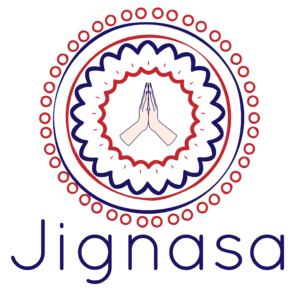Ridding Corrupt Coal Interests Highlighted Prakash Chandra Parakh’s Career
In a career marked by battling corruption in the coal industry, Prakash Chandra Parakh served as an IAS officer in the departments of Civil Supplies, Land Reforms, and Commercial Taxes in Hyderabad, Andhra Pradesh.
After serving in those roles, Parakh become the Managing Director of Godawari Fertilizers and Chemicals. He later moved to Delhi to become the Secretary in the Ministry of Coal for the government of India, where his coal contract reforms became the standard across the nation. He has been commissioner, secretary, and principal secretary in the Department of Industries. He currently works with nongovernmental organizations.
Early Life
Parakh was born in Jodhpur, Rajasthan. He graduated from the University of Rajasthan in 1963, with a Bachelor’s of Science in physics, mathematics and geology. He then received a Master’s degree in applied geology from the Indian Institute of Technology, Roorkee in 1966. After completing his master’s, he joined the National Mineral Development Corporation as a mining geologist. There Parakh met a colleague whose family wanted the friend to become an IAS officer. The friend encouraged Parakh to take the civil service exam, which he passed in his first attempt. He undertook no special preparation except for studying books on history and geography. In 1969 he joined the IAS as a probationer.
Career
Parakh worked from 1969 to 1984 for the Commercial Taxes Department of Andhra Pradesh. In the mid-1970s he became the Deputy Commissioner of Commercial Taxes. In that role he was able to stop the smuggling of liquor from Pondicherry to Andhra Pradesh, which resulted in a substantial increase in state excise revenue.

From 1984 to 1989 he served as the Director of the Ministry of Petroleum and Natural Gas for Andhra Pradesh, where he oversaw the exploration and marketing divisions. While serving in this position, Parakh graduated from the University of Bath (United Kingdom) with a Master’s degree in fiscal studies in 1986.
In the early 1990s he became the Managing Director of Godawari Fertilizers and Chemicals, and was able to convert a loss-making government company into a profitable one. By 2004, he had become the managing director of state government companies, commissioner industries and secretary of public enterprises and industries for the government of Andhra Pradesh.
From March 2004 to December 2005, he served as the Secretary in the Ministry of Coal for the government of India. In this position he faced one of the most difficult struggles of his career. Parakh developed a serious conflict over policy and administration with his ministers in the Ministry of Coal. This sector of the Indian economy was steeped in corruption and poor administration, thwarting Parakh’s goal of bringing transparency and objectivity to the Ministry. Parakh sought to institute a system of competitive bidding among companies attempting to win coal contracts. His system was reviewed and approved by then Prime Minister Manmohan Singh.
While Parakh was the Secretary of Coal, the Central Bureau of Investigation (CBI) filed a Financial Information Repository in coal block allocation to Hindalco Industries. Parakh was accused of allegedly cheating and criminal conspiracy. Hindalco was ruled as eligible and competent to receive the block allocation as the public sector Neyveli Lignite Corporation. Hindalco and Neyveli became a joint venture, which it was felt was equitable to both companies. However, CBI officials believed this was improper and began investigating the venture. They believed that there was a conspiracy behind the allocation of coal blocks to Hindalco. Frustrated by the political interference in his official duties as the coal secretary, Parakh pleaded his case to the Prime Minister, even offering to resign.
Ultimately Parakh’s efforts to instill transparency in the Ministry of Coal helped boost the morale of the senior executives in the coal companies and significantly changed the operations of the mining industry across India. The current system of allocating mineral resources in the country is rooted in Parakh’s initiatives in the Ministry of Coal.
Philanthropy
Parakh is the Chairman of Bhagwan Mahavir Jain Relief Foundation Trust that supports kidney patients by providing dialysis at a nominal cost of INR200 per session. The trust is the
largest single service provider in Hyderabad with nine dialysis centers. With 180 state-of-the-art dialysis machines, the trust administers about 500 dialysis sessions a day. He is also a patron of the Hyderabad branch of the Bhagwan Mahavir Viklang Sahayata samiti, the largest artificial limb provider in the world. The Hyderabad branch caters to physically challenged people of Telangana and Andhra Pradesh by providing artificial limbs free of cost.
